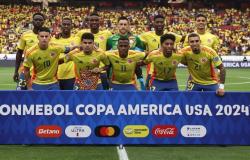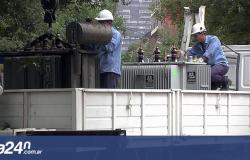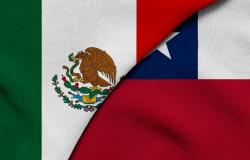From ANALYSIS
So far this year, the Municipality of Gualeguaychú sold material recovered from its treatment plant for 19 million pesos. A total of 120 tons were sold, which implied that important income to the coffers of the Gualeguaychuense government.
On a different scale (but equally valid as an example) Viale recovered and sold a few days ago, glass, cardboard and metals for 3 million pesos. In the case of Viale, all proceeds are distributed among the members of the treatment plant.
In the first quarter of 2024, Crespo sold 36,277 kilograms of inorganic waste.
Through its biodigester, the town of Cerrito transforms all of the town’s organic waste into gas. This supplies a school, the treatment plant and a Community Center.
Tabossi and Seguí are other cities where a part of the waste is recovered through their plants, it was highlighted in a report released in the program “Cuestión de Fondo” (Channel 9, Litoral).
However, just as there are localities where separation at origin (home) and the subsequent task of the recoverers are important, there are other cities in which there is still a long way to go.
“We ask people to separate waste”
Claudia Villagra is the owner of the Nueva Vida Cooperative, one of the three companies in the social economy of Parana dedicated to the recovery of waste.
The entity, which in a few months will celebrate ten years of existence, is made up of 72 workers divided into two shifts. Together, they manage to recover about 5,000 kilos of glass, 1,500 kilos of plastic and 1,000 kilos of cardboard per week.
“The waste arrives all mixed. There is no differentiated separation. We ask the people of Paraná to separate the garbage. It is not so difficult; It is solved with two small check marks. I dry it in one and wet it in another,” she describes and advises.
Everything that the entity recovers is sold to companies in other cities: the cardboard and plastic is sold to a firm in Buenos Aires; blowing to a company in Rosario del Tala and the glass is taken to the city of Rosario.
“The formation of the cooperative changed our lives. We were ‘surgeons’ of the Volcadero and there we got wet or cold. Now, on this property we have a roof, a bathroom, an office, work materials and security elements,” he says.
Public policy and daily habit
For the member of the Eco Urbano Foundation, Horacio Enríquez, the treatment of waste is disparate in the different towns in Entre Ríos. “The situation is very dynamic, since there are municipalities that have had continuity for years. It depends a lot on the public policy of that locality. Federal was a reference for years in the matter and then it was discontinued. And so it happens with other cities. It is not something static. Additionally, larger cities have greater complexity. Paraná and its Volcadero happen. Due to the size of its population, it is more difficult for that neighbor to separate at origin, and this household separation is the fundamental step for comprehensive and inclusive management to work well. “Citizen participation in this small daily habit such as separating waste is essential.”
Open dumps, a long-standing problem
The general director of Environment and Climate Change of the province, Maximiliano Gómez, recognized “A Matter of Background” (Channel 9, Litoral) Entre Ríos has had various problems related to waste treatment for several years, especially with its final disposal. “Most of it is not done properly and in accordance with current legislation,” he explained.
“We must highlight the commitment that the Entre Ríos government has publicly assumed, since it understands that the eradication of open dumps is a priority. And this inevitably requires coordinated work with local governments, taking into account that the treatment and comprehensive management of urban solid waste is a responsibility of both the Municipalities and the communes.”
Regarding the judicialization of different claims for open-air garbage dumps that have occurred in recent years in various towns in Entre Ríos, Gómez stated: “Justice has required this Secretariat’s collaboration and technical advice to have updated information on each particular procedure. . In addition, it generated instances so that we can articulate joint work with the Municipalities.”






